Intro
Discover 5 crucial EKG test facts, including electrocardiogram procedures, heart rate monitoring, and arrhythmia detection, to understand cardiovascular health and diagnostic results.
The electrocardiogram, commonly referred to as an EKG or ECG, is a fundamental diagnostic tool in the field of cardiology. It provides crucial information about the heart's electrical activity, helping healthcare professionals diagnose and monitor various heart conditions. Understanding the basics and intricacies of an EKG test can empower individuals to take a more active role in their heart health.
An EKG test is a non-invasive procedure that records the electrical signals produced by the heart. These signals, which control the heartbeat, are captured by electrodes placed on the skin of the chest. The test is painless and can be performed in a matter of minutes, making it a valuable tool for both routine check-ups and emergency situations. The information gleaned from an EKG can help doctors identify irregular heartbeats, diagnose heart attacks, and monitor the effectiveness of treatments for heart conditions.
The importance of the EKG test cannot be overstated, given its role in detecting heart abnormalities and guiding treatment decisions. For individuals at risk of heart disease or those experiencing symptoms such as chest pain or shortness of breath, an EKG can provide critical insights into their heart health. Moreover, advancements in technology have led to the development of portable EKG devices, making it possible for people to monitor their heart activity outside of a clinical setting. This accessibility has opened up new avenues for preventive care and self-monitoring, allowing for earlier detection and intervention in potential heart issues.
EKG Test Basics
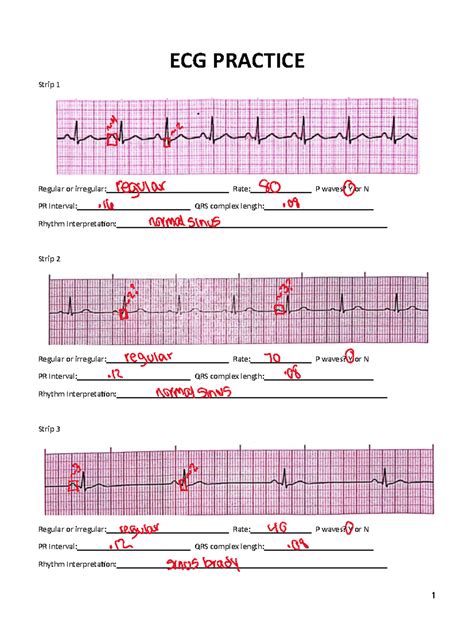
How EKG Tests Work
The process of conducting an EKG test is straightforward. The patient lies down on an examination table, and a technician attaches between 6 and 12 electrodes to the chest and sometimes the limbs. These electrodes are connected to the EKG machine, which then starts to record the heart's electrical activity. The test typically takes about 5 to 10 minutes, during which the patient is asked to remain still and breathe normally. The recorded data is then analyzed by a healthcare professional, who looks for patterns or abnormalities that could indicate heart problems.Benefits of EKG Tests
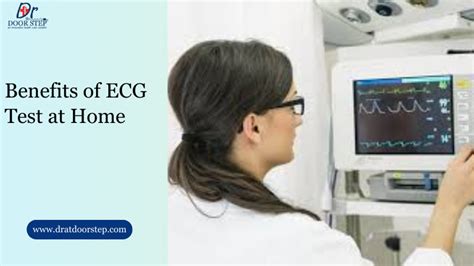
Common Uses of EKG Tests
EKG tests are used for a variety of purposes, including diagnosing heart attacks, monitoring heart rhythm, and assessing the heart's overall health. They are particularly useful in emergency situations, where quick and accurate diagnoses are critical. For example, if a patient is experiencing symptoms of a heart attack, such as chest pain or difficulty breathing, an EKG can rapidly provide essential information that guides immediate treatment decisions. Additionally, EKGs are used in routine check-ups for individuals with known heart conditions or those at high risk of developing heart disease, serving as a preventive measure to catch any potential issues early.EKG Test Results
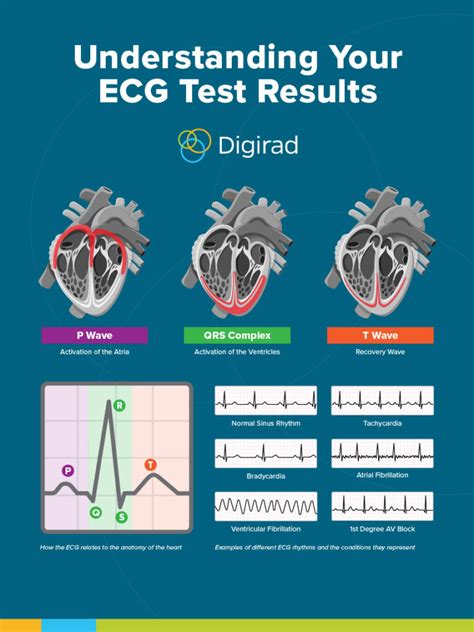
Understanding Abnormal EKG Results
Abnormal EKG results can indicate a range of heart issues, from minor anomalies that may not require immediate attention to serious conditions that necessitate urgent care. For example, an arrhythmia, where the heart beats too slowly, too quickly, or with an irregular rhythm, can be detected through an EKG. Similarly, signs of a previous heart attack, such as scar tissue, can also be identified. In cases where the EKG results are abnormal, further testing, such as echocardiograms or stress tests, may be recommended to gather more detailed information about the heart's condition.Preparing for an EKG Test
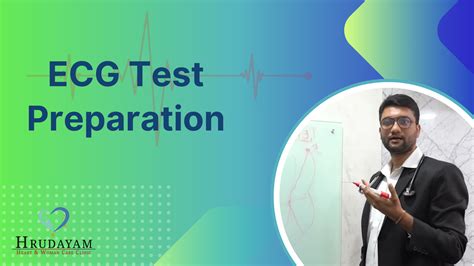
Tips for a Successful EKG Test
To ensure a successful EKG test, it's essential to follow any instructions provided by the healthcare team. This includes avoiding caffeine and nicotine for a few hours before the test, as these substances can affect heart rate and potentially lead to inaccurate readings. Remaining calm and still during the test is also crucial, as movement can interfere with the EKG machine's ability to record accurate data. By understanding the process and what is expected, patients can play an active role in ensuring the test is conducted effectively and that the results are reliable.EKG Tests in Preventive Care

The Role of EKG in Holistic Heart Health
In the context of holistic heart health, EKG tests play a critical role in providing a comprehensive picture of the heart's electrical activity. When combined with other diagnostic tools and lifestyle assessments, EKG results can help healthcare providers develop personalized treatment plans that address not just the physical aspects of heart health but also the emotional and psychological factors that contribute to overall well-being. This integrated approach recognizes that heart health is influenced by a myriad of factors, including diet, exercise, stress levels, and social connections, and seeks to promote balance and wellness across these domains.Future of EKG Technology
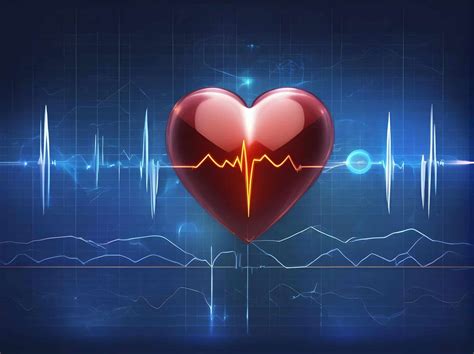
Advancements in EKG Devices
Advancements in EKG devices are not only improving their diagnostic capabilities but also making them more user-friendly and accessible. Portable EKG devices, for example, are becoming increasingly popular, as they allow individuals to monitor their heart activity outside of a clinical setting. These devices can be particularly useful for people with known heart conditions or those who are at high risk of developing heart disease, providing them with a tool to track their heart health in real-time. Furthermore, innovations in electrode technology and signal processing are enhancing the accuracy and reliability of EKG tests, reducing the likelihood of false positives or false negatives and ensuring that patients receive the most appropriate care.What is an EKG test used for?
+An EKG test is used to measure the electrical activity of the heart, helping to diagnose and monitor various heart conditions, including arrhythmias, heart attacks, and other cardiac issues.
How long does an EKG test take?
+An EKG test typically takes about 5 to 10 minutes to perform, although the preparation and analysis of the results may take a bit longer.
Is an EKG test painful?
+No, an EKG test is not painful. It is a non-invasive procedure that involves attaching electrodes to the skin, which may cause some minor discomfort but does not involve any needles or injections.
Can I perform an EKG test at home?
+Yes, with the advancement of technology, there are now portable EKG devices and mobile health applications that allow individuals to perform EKG tests at home. However, these should be used under the guidance of a healthcare professional and in conjunction with regular medical check-ups.
How often should I get an EKG test?
+The frequency of EKG tests depends on individual health needs and risk factors. Individuals with known heart conditions or those at high risk of developing heart disease may need to undergo EKG tests more frequently, as recommended by their healthcare provider.
As we move forward in understanding and managing heart health, the role of EKG tests will undoubtedly continue to evolve. By embracing these advancements and staying informed about the latest developments in EKG technology, individuals can empower themselves to take better care of their hearts. Whether through preventive care, diagnostic testing, or ongoing monitoring, the insights provided by EKG tests offer a powerful tool in the pursuit of holistic heart health. We invite you to share your thoughts and experiences with EKG tests, and to explore further the many resources available for learning more about this vital aspect of cardiac care. By working together and leveraging the full potential of EKG technology, we can strive towards a future where heart health is accessible, manageable, and optimized for all.
